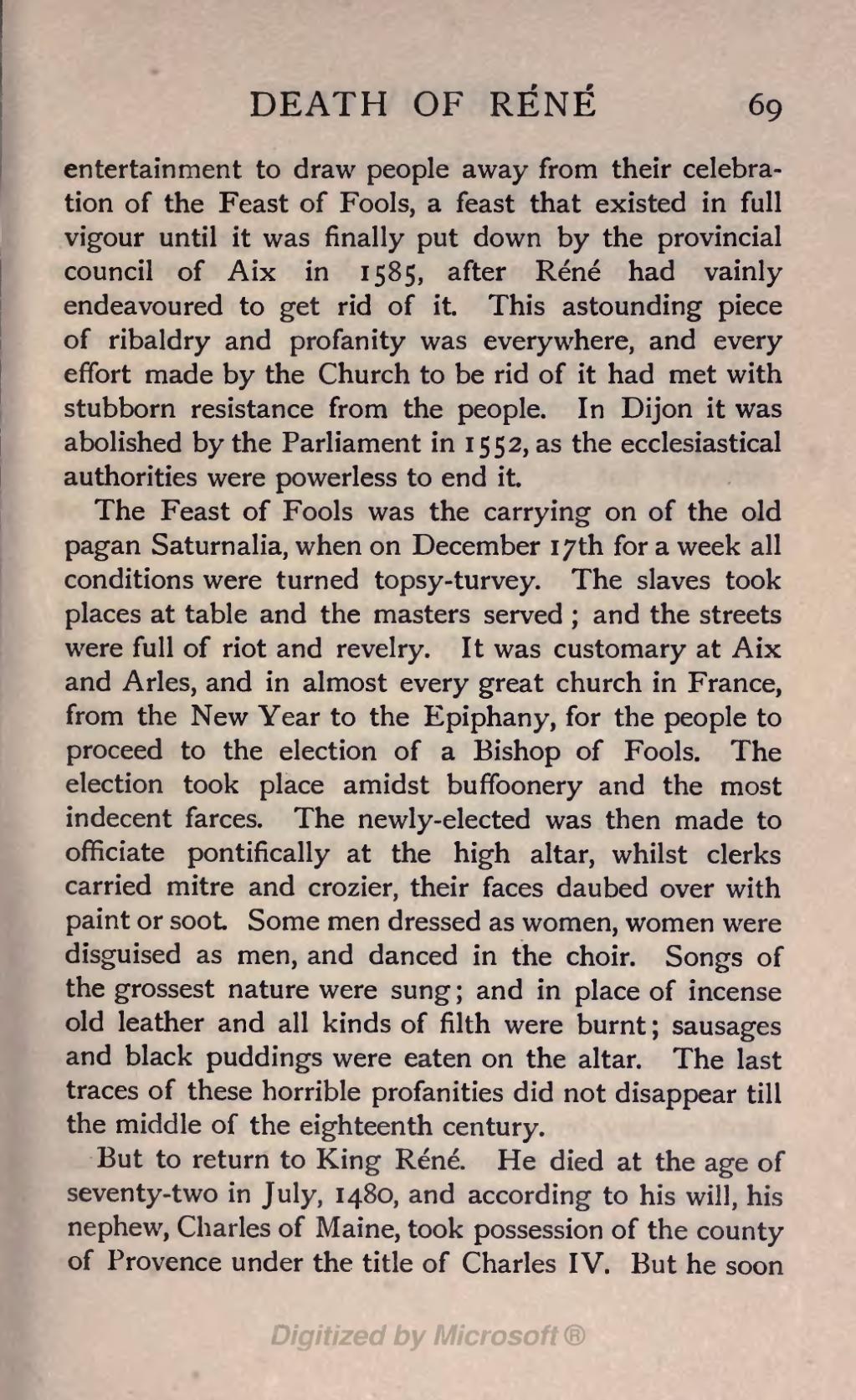entertainment to draw people away from their celebration of the Feast of Fools, a feast that existed in full vigour until it was finally put down by the provincial council of Aix in 1585, after Réné had vainly endeavoured to get rid of it. This astounding piece of ribaldry and profanity was everywhere, and every effort made by the Church to be rid of it had met with stubborn resistance from the people. In Dijon it was abolished by the Parliament in 1552, as the ecclesiastical authorities were powerless to end it.
The Feast of Fools was the carrying on of the old pagan Saturnalia, when on December 17th for a week all conditions were turned topsy-turvey. The slaves took places at table and the masters served; and the streets were full of riot and revelry. It was customary at Aix and Aries, and in almost every great church in France, from the New Year to the Epiphany, for the people to proceed to the election of a Bishop of Fools. The election took place amidst buffoonery and the most indecent farces. The newly-elected was then made to officiate pontifically at the high altar, whilst clerks carried mitre and crozier, their faces daubed over with paint or soot. Some men dressed as women, women were disguised as men, and danced in the choir. Songs of the grossest nature were sung; and in place of incense old leather and all kinds of filth were burnt; sausages and black puddings were eaten on the altar. The last traces of these horrible profanities did not disappear till the middle of the eighteenth century.
But to return to King Réné. He died at the age of seventy-two in July, 1480, and according to his will, his nephew, Charles of Maine, took possession of the county of Provence under the title of Charles IV. But he soon
